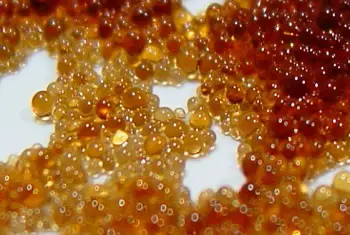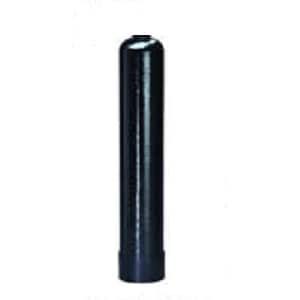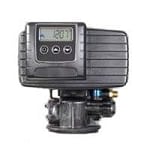A water softener is not something you shop for very often, so when you do, it’s hard to know what to expect. There are so many different kinds and styles, which one should you choose? And what a price difference from one to another, is there a big difference in quality?
Why Are Some Water Softeners So Expensive? Water softeners can vary in price due to the quality of parts that make up the water softener, extra features, and special functions of the water softener. Although the price of a water softener does not determine the quality, there are advantages to paying a little more for a water softener.
There are many things that can determine the price of a water softener. The manufacturer would like to say that their water softener is worth every bit of what they are asking. But is what they are trying to sell you actually worth the money? Let’s find out!
What are the basic components of a water softener, and what do they cost.
A standard water softener needs four components to perform its water softening task.
Water softening resin, a tank to hold its water softening resin, a brine tank to hold the brine that it needs to regenerate its water softening resin, and a control valve to perform the different functions that make the whole system work.
Water softening resin cost:

Although there are a few different types of water softening resin, they all accomplish the same basic function for the average homeowner, they soften the water.
Some manufacturers will create blends of water softening resins along with other media for the purpose of giving extra benefits to buying their system over the competitions, but more often than not, these blends are not effective, and can even inhibit the systems function.
A mid-sized water softener like you would see in most homes usually contains one cubic foot of water softening resin, which would cost around $ 140.00.
If all you need to remove from your water is hardness and maybe iron, a standard water softener will work just fine. You can test your water to discover how hard it is and if you have iron in your water with a simple water test kit.
Water softener tank cost:

A water softener resin tank is really just a long tube that has a water softening resin in it. Your water flows through the water softening resin which removes the hard minerals from your water, and then the softened water flows back out of the tank, and into your home.
These tanks are very often a 9″ diameter by 48″ high tank with a standard-sized hole on the top for a control valve. The price of a tank like this can vary by where you get it, but they often average about $125.00.
Brine tank cost:

The brine tank of a water softener is a simple plastic tank that holds the salt that the water softener needs to regenerate the water softening resin in its tank. It also contains a shut-off float to stop excessive water going into it which could cause it to overflow.
This tank can take quite a bit of wear and tear over the years, but they are very strong and durable. One of the most common sizes of brine tank for a full-sized water softener is an 18″ diameter by 40″ high and cost about $155.00.
You can use slightly smaller or larger tanks, but that all depends on the size of the water softener that you will be using.
Control valve cost:

The control valve of a water softener is probably the most important part of the entire system, and it is also the most expensive.
This is where you will find most of the bells and whistles in a water softener system, but most people don’t need all the extras.
I have found that a simple digital water softener control valve will do a great job for nearly any situation. You can find a simple to use digital control valve for about $330.00
Some more expensive control valves can cost as much as $600.00 to $700.00, and for complicated water issues, they are just what you may need.
But for the most part, a 3-4 cycle control valve for about $330.00 or less should do just fine.
So a water softener should only cost about $750.00 right?
You can certainly get a high-quality water softener for around $750.00, and in most cases, it should do a fine job of softening your water for many years. At most, you may require a slightly larger system if you have a large family or very hard water.
The amount of hardness in your water, and if you have a significant amount of iron in your water, may require a larger tank that contains more water softening resin in it. This may run you a few hundred dollars more, but that should be about it.
If you have been quoted a price for a super-deluxe water softener that will cost you $2,000.00 or more, you are either getting way overcharged for a system that should cost you much less, or you are being sold a bunch of bells and whistles.
A $2,000.00 water softener will be using water softening resin to soften your water, just like a $750.00 water softener, and they both will work well for many years.
What exactly does a water softener do?
A water softener costing $300 or $3,000 is designed to remove minerals in your water that make your water less effective at cleaning and can be left behind causing spotting.
As your water passes through a water softener, the hard minerals in the water are removed from the water by a process called ion exchange.
The hard minerals collect on the water softening resin, and the water leaves the water softener, free of hard minerals.
An expensive water softener softens water, and so does an inexpensive one.
Whether the water softener is an inexpensive model that costs $300.00 or an expensive model costing $3,000.00, the water coming out of the system will be softened in the same way.
An expensive water softener may be more efficient than an inexpensive one.
One thing that I do admire about some of the more expensive water softeners out there is that some of them are quite efficient. If you have a low yielding well or are just concerned about water conservation, there are some very efficient water softeners out there.
But their efficiency can cost you a pretty penny!
There are non-electric water softeners on the market that can use less than half the water of a conventional water softener, but they are also as much as three times the price of a conventional water softener and are not cheap to fix.
If you are lucky enough to get one that lasts you for many years without the need for repair, that’s great. But most of the time, they will need several hundreds of dollars worth of repairs in their first 10 years or so. And probably not worth the amount of water saved.
So if water conservation is not on your list of water softener features, you might as well stick to a conventional mid-priced water softener.
A water softener does not remove everything.
Many people misunderstand just what a water softener does. A water softener removes hard minerals from your water, and that’s it! Most odors or odd tastes in your water will not be cured by a water softener.
One exception to this is if you are getting a metallic odor or taste because you have iron in your water. A water softener can remove iron from water providing that it is set properly to do so.
See my article Why Does My Water Taste Like Metal, for more on this.
A second common odor in water is the bleach smell that comes from chlorine in your water. A water softener will remove chlorine from your water, but it will damage the water softening resin in doing so.
For more on this, see my article Can Water Softener Resin Go Bad.
If you have more than just hardness in your water, you very well may need more than just a water softener, or you may need a special type of water softener if you have a municipal water supplier.
Municipal water suppliers will use chlorine to disinfect your water before it gets to your home. Chlorine in the water will damage standard water softening resin, and therefore, it must be removed before it makes contact with the resin.
This is usually done with a separate carbon filter, or with a water softener that has a separate chamber that contains carbon to remove the chlorine. These combo systems will be a bit more expensive than a standard water softener.
And if you have a high level of chlorine going to your home, a separate carbon tank may be needed to protect your water softener. This could double the expense of your water system, but it will often pay off in the long run.
You have to test your water to determine just what water treatment you need.
You may already know that your water is hard by the way it feels and because you see spots on your dishes.
But you really need to know just how much hardness is in your water before you can be sure if you need an inexpensive, small water softener, or a more expensive larger water softener.
A simple water hardness test kit will determine your water hardness, but if you believe that you may have more issues with your water than just hardness, a more complete water test kit would be in order.
How long do you intend on staying in your current home?
Although the price of a water softener certainly does not determine the longevity of the water softener, a very inexpensive water softener is not likely to last as long as a more expensive one.
I have seen water softeners that cost just a few hundred dollars last for 10- 15 years with little to no problems, but this is often the exception to the rule rather than the norm.
But on the other end of the spectrum, I often find that mid-priced water softeners often last just as long as much more expensive models, with about the same amount of maintenance and repair.
This is part of why you won’t find any expensive water softeners in my selection of recommended water softeners.
And often the cost of a mid-priced water softener is much less than an expensive one.
This is mostly due to expensive water softeners having special parts that can only be gotten by the local authorized dealer, who then marks-up the price by 300 percent.
Mid-priced water softener parts are often not exclusive to authorized dealers, and therefore the costs of the parts tend to be lower, and since there are more service people that can do the repair, the cost of the overall repair is often much less.
Are you looking for a short term solution?
Looking to remodel or move to a new location in the near future? Then you probably shouldn’t consider an expensive water softener at all.
If you are just looking for a water softener to get you by a few years, just get a very simple one for a few hundred dollars. Basic water softeners are often easy to install yourself and will last you several years without breaking the bank.
A one-piece water softener won’t take up as much space as a more expensive one and will be very easy to replace when you decide to upgrade to a more permanent system.
How hard will your water softener have to work?
A more expensive water softener will often be a bit more reliable if you are looking for a water softener that will be softening a large quantity of very hard water.
A household with 5 people will obviously use 5 times the water of a household with just 1 person, and therefore the same type of water softener will have to work 5 times harder to treat the water.
Also, one home may have only 5 Grains Per Gallon (GPG) of hardness, where another home may have 25 Grains Per Gallon.
This also means that if the second home has the same model water softener as the first, it will have to work 5 times harder.
Now just think how much harder the same water softener would have to work if the second home had 5 people and 25 Grains Per Gallon of hardness. You get the idea.
So don’t think that just because an inexpensive water softener works just fine in one home, that it will perform the same in another. Get the correct size of water softener for your home’s needs.
Bigger is not always better!
Whether a water softener is expensive or not, you should not simply go for the largest water softener within your budget.
A larger water softener means that it has more water softening resin in it, which can mean more potential drop in water pressure to your home.
Unless your water pressure is excellent, you should only go with the correct size water softener for your particular situation.
High price now, doesn’t mean low price latter.
Although most higher-priced water softeners are made of higher quality materials, that doesn’t mean that the parts of the water softener will last forever.
And if you have an expensive water softener from a company that you can only get serviced by one of their exclusive dealerships, they can really charge a bundle for even the simplest repair that you would think shouldn’t have needed to be done in the first place.
Just like when you buy an expensive car, you better be prepared for expensive repair bills, the same applies to when you purchase an expensive water softener.
Even if the water softener is truly high quality, motors burn out, valves stick, gears wear, and water channels clog. Anyone of these service calls could cost you as much as a brand new mid-priced water softener.
You may be paying for the name, and little else.

As I stated right in the beginning, a water softener system is made up of a tank, water softening resin, a brine tank, and a control valve.
Many companies will take an existing water softener that only costs $500, and put a fancy new cover on it to try and sell it for $1,000 or more.
Don’t be fooled by a water softener with a pretty cover being sold by a salesperson with a big smile. What’s truly important is what is underneath the cover, and how well it works.
Here are some examples of what my favorite water softener control valves look like, if a water softener has one of these on top of the tank, it is a quality valve that has been around for a long, long time, and has stood the test of time.
Don’t buy a water softener based on bells and whistles.
Do you really care if a water softener can tell you how many gallons of water you used on October 23 two years ago? I don’t either. But many water softeners on the market today have features like this.
Now, this water usage history can be valuable to you if you need to keep track of your water bill, and it can be helpful to a technician if there is a problem in the future. But the chances that you will need to know your water usage history is very small.
Some water softeners are “non-electric” and claim to save you lots of money on your electric bill. But the average electric water softener uses about the same amount of electricity as a nightstand clock radio or a coffee maker.
Non-electric means that the water softener relies on clear and constant water flow for it to work. If some debris gets into the systems control valve, it could mean a very expensive repair bill.
The warranty may be about the same for an inexpensive water softener as it is for an expensive one.
Warranties can be a little unclear when it comes to just what they will cover and what they won’t cover.
And many times, even if the part should be covered, the repair person will blame something else for the part going bad so that it is no longer covered.
When it comes to warranties for water softeners, the manufacturer is warrantying the parts based on how long they are expected to last. And you are paying more up-front for that warranty coverage.
As long as a water softener has a reasonable warranty for the control valve of the system, you should be just fine. I find that a 5-year warranty is very common, and enough to expect on a water softener.
A water softener doesn’t have to be expensive to be of high quality and last a long time.
If you are in the market for a water softener, you should take a look at my recommended water softeners, to get a better idea of what system would be best for you.
In addition to a water softener, many people are adding a reverse osmosis drinking water system to provide better drinking water for your home.
I have put together a shortlist of highly recommended reverse osmosis systems, that will fit your household needs, and provide great drinking water for your family.


New home construction in south texas 4 companies have come out and tested the water and said its a 9 on the hard scale This house is in the framing stage so easy to add lines where I want etc, they all want to sell me a 4-6k system that basically is the same as the other guys. I’m super handy, my cousin is a plumber but I don’t want to waste $$$ on overpriced units. It will go in the garage and a soft water loop will already be there when the time comes to install. I can pre plumb the Ro line to the fridge ( only need it there) no sink use is necessary. There is no drain to tie into in the garage and I understand you need one? None of them mentioned it and all said it can work…..what am I missing? I just want something mid-range for 2 people, 4 bathrooms, hardly any guests ever, help needed in Texas 🙂
Hello Derek and thank you for the question.
First of all, 9 grains per gallon of hardness is not very hard water so you probably don’t need a 4-6k water system at all.
For 2 people with 4 baths, any basic water softener and reverse osmosis system would do just fine providing there are no other issues with your water.
You will need to run a drain line from the water softener but you can simply run it to a drain for a washing machine or tap into a drain line close to where you will be putting the water softener. (Make sure that you anchor the drain line if you run it down a washing machine drain)
You could probably get by with a simple water softener from a big box hardware store but I have always recommended Fleck Water Softeners for their simple design and durability. They are easy to program and repair if needed and I have seen them last for 20+ years in many cases.
If you have municipal water, it may be chlorinated which can damage water softener resin so you may want to consider using a carbon pre-filter to remove the chlorine before it gets to the water softener.
You can also add any popular reverse osmosis system for just a few hundred dollars and you and your cousin should have no problem installing both systems in just a few hours.
I hope this was helpful!
Paul